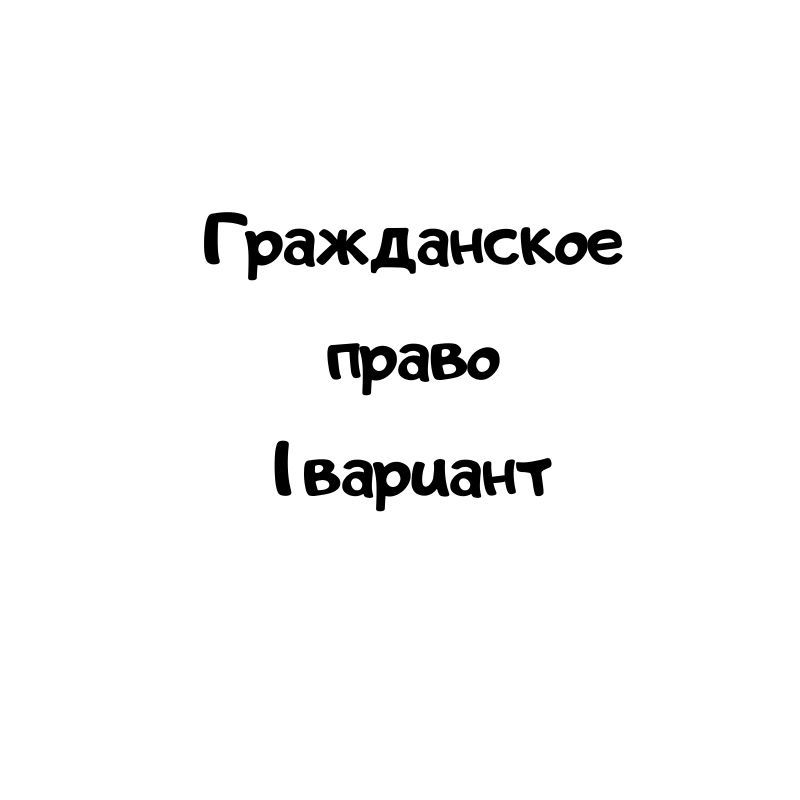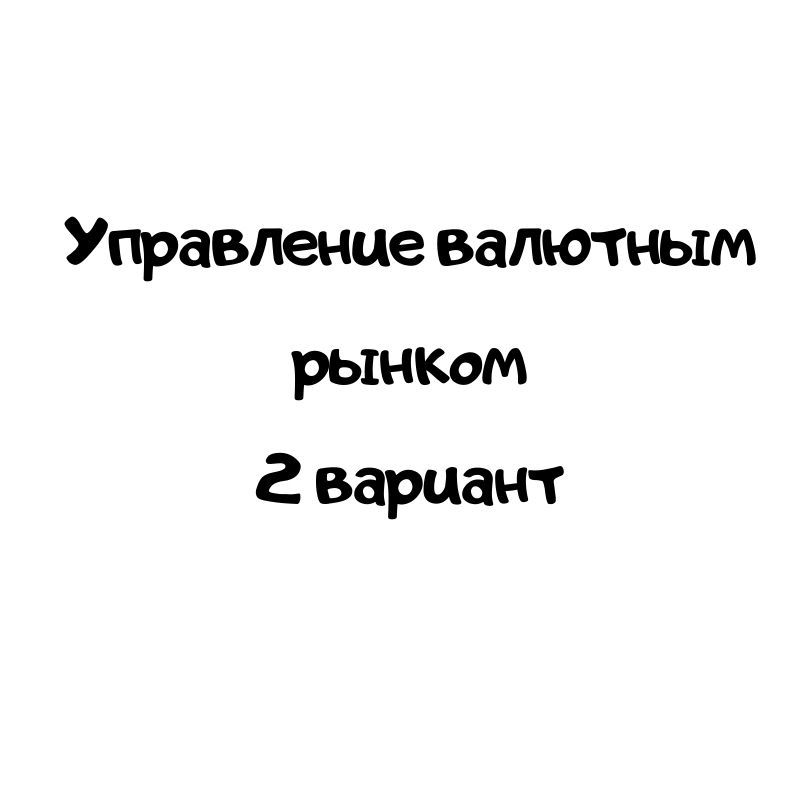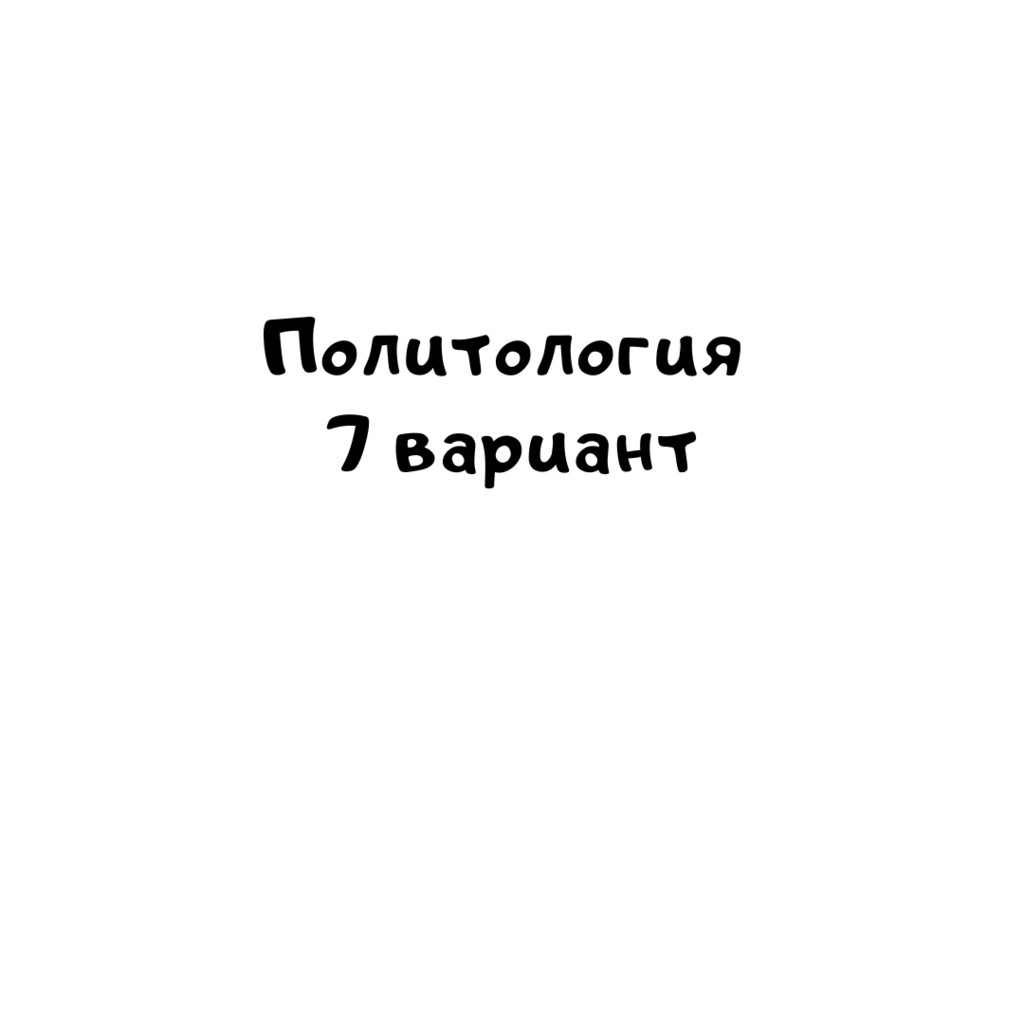Английский язык 9 вариант
400 pуб.
Купить
В наличии: 0
шт.
I. Перепишите и письменно переведите предложения на русский язык
Вставьте нужный артикль: a) a; b) an; c) the; d) -.
1 the man suffering from shock should not be given anything to drink. 2 You will get the shock if you touch a live wire with that screwdriver. Why don't you get a screwdriver with an insulated handle?
3 It costs fifty-five and the half pence and I only have fifty pence piece. - You can pay by the cheque here. - But can I write a cheque for fiftyfive and half pence?
4 the Mr Smith is old customer and honest man. - Why do you say that? Has he been accused of the dishonesty?
II. Перепишите и письменно переведите предложения на русский язык
Заполните пропуски неопределенными местоимениями или их производными: a) some; b) any; c) no; d) их производные.
1. There is no bread left. Go and buy a loaf.
2. I'd like to buy some new clothes but I haven't got no money.
3. I can't see my glasses somewhere.
4. She put her handbag down anywhere and now she cannot find it.
5. It is so dark here! Can you see some in front of us?
6. Do you know that some has broken the door to the gym?
7. Shall we go anywhere for the weekend? – Sorry, we cannot. We all have something to do.
III. Раскройте скобки, употребляя глаголы в требующейся форме
Перепишите и письменно переведите предложения на русский язык.
1. We could not go out because it It had been raining hard since early morning.
2. She has been teaching at our school for twenty years now.
3. Ring me up as soon as you come home.
4. He began to write his composition at three o'clock. It is already eleven, and he is still writing it. He says he will have finished it by twelve.
5. We have been helping our librarian to put the books in the right order for already three days, but we have arranged only half the books.
6. What were you doing when I came in? Что вы делали, когда я пришла?
7. When I came to his house, they told me that he had left an hour before.
8. On checking up his answers he found out that he had made several mistakes.
9. When I left home, the snow had already stopped, but a strong wind was blowing.
10. Have you read this book? — Yes, I have read it. I think it is very interesting.
IV. Раскройте скобки, употребляя глаголы в требующейся форме в пассивном залоге
Перепишите и письменно переведите предложения на русский язык.
1. Excuse me, sir. Could you give me some directions? I'm lost.
2. That's hard work, I gasped. I need to rest for a while.
3. The children are excited about going to the circus. They're looking forward to seeing the elephants, the clowns, and the acrobats.
4. George dressed in his best suit today because he has an important interview this afternoon.
5. Lousie is probably sleeping. The lights in her room turned off.
6. Carolyn and Joe were married to each other for five years, but now they are getting divorced.
7. You told me one thing and John told me another. I don't know what to think. I confused.
8. Someone in the accident yesterday?
9. The accident was seen by several people.
10. When cleaned room?
V. Раскройте скобки, употребляя глаголы в требующейся форме в условных предложениях
Перепишите и письменно переведите предложения на русский язык.
1. If he did not read so much, he would not know. English literature so well.
2. If he had come to our house yesterday, he would have met his friend.
3. If he does not pass his examination, he will not get a scholarship.
4. If she had not helped me, I should have been in a very difficult situation.
5. My father would have more free time if he did not read so many newspapers.
6. If only you had let me know, I should have gone there immediately.
7. If I were a famous singer, I should get many flowers every day.
8. If it is not too cold, I shall not put on my coat.
9. 1 should have written the report long ago if you had not disturbed me.
1o. If my friend is at home, he will tell us what to do.
VI. Перепишите и письменно переведите предложения с английского языка на русский язык
1. My point is that, in general, the courts are under an injunction not to give custodial sentences to offenders under 21. Should the courts give punishments in the form of imprisonment for offenders under the age of 21?
2. More than half of all recorded crimes are car crimes, involving the theft ofvehicles or the theft of property from vehicles. What crimes are most popular?
3. The following month he publicly waived the death sentence hanging over the organizers of the second coup attempt of 1983. When it was abolished the death penalty?
4. Franklin ended up serving four life sentences on dual state and federal charges. Why put Franklin?
5. Armando Lambruschini, also pardoned, was already provisionally free, having served three-quarters of a lighter sentence. Armando Lambruschini pardoned?
6. That is a beginning, but I expect the insurance industry to do much more in helping to reduce car crime. What crimes are you trying to reduce?
7. The government has ordered the trial of all detainees within six months. Who freed the government?
8. Rangoon-based diplomats were reported as saying that the number of political detainees was much higher than the official figure. How many political prisoners?
9. Prosecutors said an additional broker, Christopher Avena of Harriman Group, already has pleaded guilty to charges stemming from the investigation. Acknowledged their guilt of the accused?
10. The policy shift was triggered by a sharp increase in violent crimes committed by young offenders during the late 1980s. What caused the change in policy?
VII. Прочтите текст. Письменно переведите.
Courts and Crimes
Whether the case is committed to the Crown court depends on the seriousness of the crime. The most minor crimes, such as most motoring offences, are known as summary offenses, and they are always dealt by magistrates. The most serious crimes such as murder and armed robbery are called indictable offenses, and are always committed to the Crown court.
There are many crimes known as ―either way‖ offenses, which, as the name implies, may be tried by magistrates or the Crown court. Sometimes the decision is up to the accused himself, but he should listen carefully to the advice of his lawyer: he may decide that he stands a better chance of being acquitted by a sympathetic jury than by a panel of stern magistrates, but he runs the risk of a higher sentence from a Crown court judge if the jury find him guilty.
Defence
The accused is entitled to be defended by counsel. Witnesses for the prosecution may be cross-examined by the accused or his counsel and the accused may call witness or give evidence in his own defence. At the conclusion of the evidence, and after speeches on both sides, the judge sums up the case to the jury, which considers its verdict.
If they decide that the accused is not guilty, i.e. if they acquit him, he is immediately discharged. If the jury return the verdict of guilty, sentence is pronounced by the judge.
Вставьте нужный артикль: a) a; b) an; c) the; d) -.
1 the man suffering from shock should not be given anything to drink. 2 You will get the shock if you touch a live wire with that screwdriver. Why don't you get a screwdriver with an insulated handle?
3 It costs fifty-five and the half pence and I only have fifty pence piece. - You can pay by the cheque here. - But can I write a cheque for fiftyfive and half pence?
4 the Mr Smith is old customer and honest man. - Why do you say that? Has he been accused of the dishonesty?
II. Перепишите и письменно переведите предложения на русский язык
Заполните пропуски неопределенными местоимениями или их производными: a) some; b) any; c) no; d) их производные.
1. There is no bread left. Go and buy a loaf.
2. I'd like to buy some new clothes but I haven't got no money.
3. I can't see my glasses somewhere.
4. She put her handbag down anywhere and now she cannot find it.
5. It is so dark here! Can you see some in front of us?
6. Do you know that some has broken the door to the gym?
7. Shall we go anywhere for the weekend? – Sorry, we cannot. We all have something to do.
III. Раскройте скобки, употребляя глаголы в требующейся форме
Перепишите и письменно переведите предложения на русский язык.
1. We could not go out because it It had been raining hard since early morning.
2. She has been teaching at our school for twenty years now.
3. Ring me up as soon as you come home.
4. He began to write his composition at three o'clock. It is already eleven, and he is still writing it. He says he will have finished it by twelve.
5. We have been helping our librarian to put the books in the right order for already three days, but we have arranged only half the books.
6. What were you doing when I came in? Что вы делали, когда я пришла?
7. When I came to his house, they told me that he had left an hour before.
8. On checking up his answers he found out that he had made several mistakes.
9. When I left home, the snow had already stopped, but a strong wind was blowing.
10. Have you read this book? — Yes, I have read it. I think it is very interesting.
IV. Раскройте скобки, употребляя глаголы в требующейся форме в пассивном залоге
Перепишите и письменно переведите предложения на русский язык.
1. Excuse me, sir. Could you give me some directions? I'm lost.
2. That's hard work, I gasped. I need to rest for a while.
3. The children are excited about going to the circus. They're looking forward to seeing the elephants, the clowns, and the acrobats.
4. George dressed in his best suit today because he has an important interview this afternoon.
5. Lousie is probably sleeping. The lights in her room turned off.
6. Carolyn and Joe were married to each other for five years, but now they are getting divorced.
7. You told me one thing and John told me another. I don't know what to think. I confused.
8. Someone in the accident yesterday?
9. The accident was seen by several people.
10. When cleaned room?
V. Раскройте скобки, употребляя глаголы в требующейся форме в условных предложениях
Перепишите и письменно переведите предложения на русский язык.
1. If he did not read so much, he would not know. English literature so well.
2. If he had come to our house yesterday, he would have met his friend.
3. If he does not pass his examination, he will not get a scholarship.
4. If she had not helped me, I should have been in a very difficult situation.
5. My father would have more free time if he did not read so many newspapers.
6. If only you had let me know, I should have gone there immediately.
7. If I were a famous singer, I should get many flowers every day.
8. If it is not too cold, I shall not put on my coat.
9. 1 should have written the report long ago if you had not disturbed me.
1o. If my friend is at home, he will tell us what to do.
VI. Перепишите и письменно переведите предложения с английского языка на русский язык
1. My point is that, in general, the courts are under an injunction not to give custodial sentences to offenders under 21. Should the courts give punishments in the form of imprisonment for offenders under the age of 21?
2. More than half of all recorded crimes are car crimes, involving the theft ofvehicles or the theft of property from vehicles. What crimes are most popular?
3. The following month he publicly waived the death sentence hanging over the organizers of the second coup attempt of 1983. When it was abolished the death penalty?
4. Franklin ended up serving four life sentences on dual state and federal charges. Why put Franklin?
5. Armando Lambruschini, also pardoned, was already provisionally free, having served three-quarters of a lighter sentence. Armando Lambruschini pardoned?
6. That is a beginning, but I expect the insurance industry to do much more in helping to reduce car crime. What crimes are you trying to reduce?
7. The government has ordered the trial of all detainees within six months. Who freed the government?
8. Rangoon-based diplomats were reported as saying that the number of political detainees was much higher than the official figure. How many political prisoners?
9. Prosecutors said an additional broker, Christopher Avena of Harriman Group, already has pleaded guilty to charges stemming from the investigation. Acknowledged their guilt of the accused?
10. The policy shift was triggered by a sharp increase in violent crimes committed by young offenders during the late 1980s. What caused the change in policy?
VII. Прочтите текст. Письменно переведите.
Courts and Crimes
Whether the case is committed to the Crown court depends on the seriousness of the crime. The most minor crimes, such as most motoring offences, are known as summary offenses, and they are always dealt by magistrates. The most serious crimes such as murder and armed robbery are called indictable offenses, and are always committed to the Crown court.
There are many crimes known as ―either way‖ offenses, which, as the name implies, may be tried by magistrates or the Crown court. Sometimes the decision is up to the accused himself, but he should listen carefully to the advice of his lawyer: he may decide that he stands a better chance of being acquitted by a sympathetic jury than by a panel of stern magistrates, but he runs the risk of a higher sentence from a Crown court judge if the jury find him guilty.
Defence
The accused is entitled to be defended by counsel. Witnesses for the prosecution may be cross-examined by the accused or his counsel and the accused may call witness or give evidence in his own defence. At the conclusion of the evidence, and after speeches on both sides, the judge sums up the case to the jury, which considers its verdict.
If they decide that the accused is not guilty, i.e. if they acquit him, he is immediately discharged. If the jury return the verdict of guilty, sentence is pronounced by the judge.




